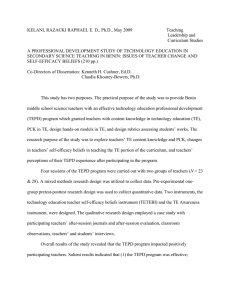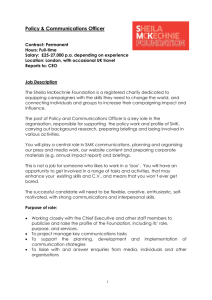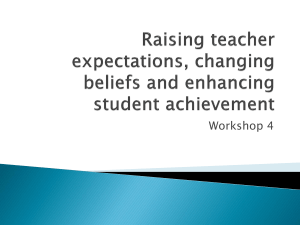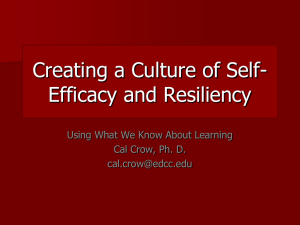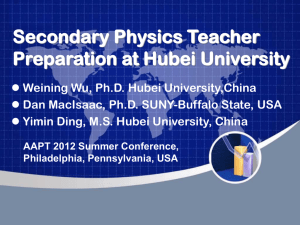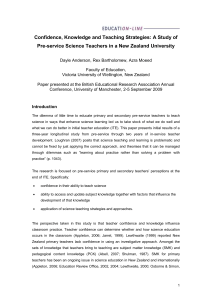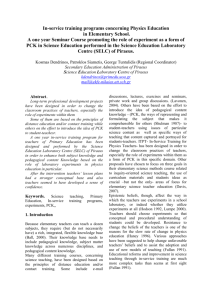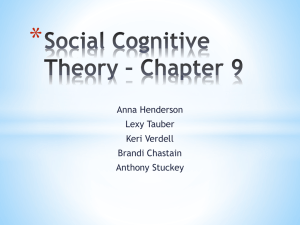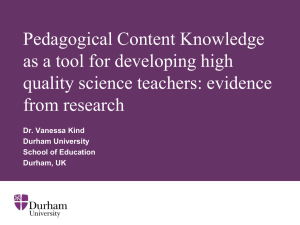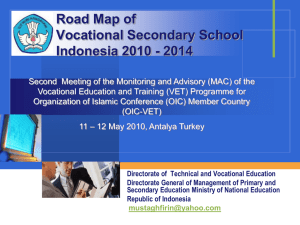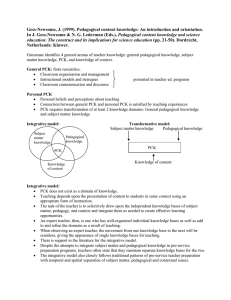What is Lesson Study?
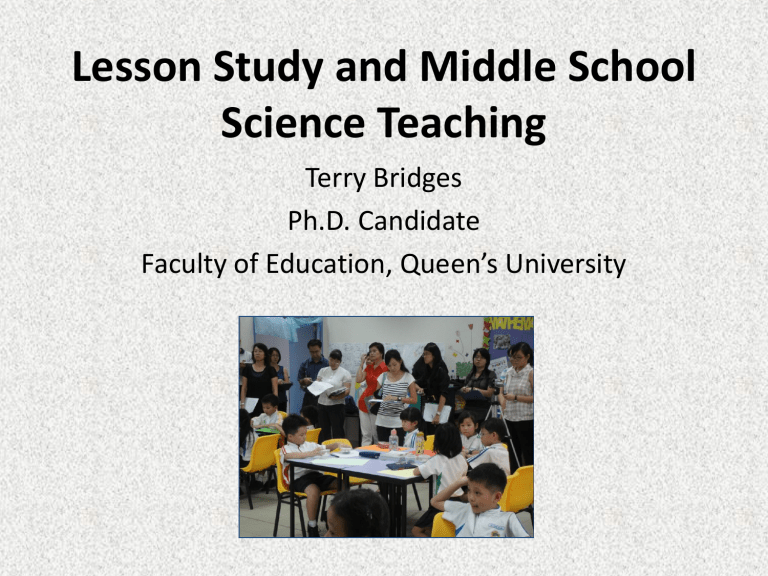
Lesson Study and Middle School
Science Teaching
Terry Bridges
Ph.D. Candidate
Faculty of Education, Queen’s University
Outline
• What is lesson study?
• Motivation
• Methodology
• Preliminary results:
– teacher self-efficacy
– teacher science subject matter and pedagogical content knowledge
– benefits/challenges of lesson study and emerging themes
• The Future
What is Lesson Study?
Motivation for my Study
• Teacher SMK, PCK, self-efficacy lead to teacher effectiveness and student achievement in math/science
• Lesson study helps with teacher confidence and SMK/PCK in math and science
• Lesson study has many characteristics of good teacher professional development
• Little research in lesson study with Canadian middle school science teachers
My Research Questions
(1)
How does lesson study influence middle-school teachers’ science SMK,
PCK, and self-efficacy in teaching science?
(1) What are the perspectives of grade 7-
8 teachers, their principal, and Board coordinators on science-based lesson study? What benefits and challenges do they associate with lesson study?
Participants and Timeline
• Recruited six grade 6-8 teachers from an Eastern Ontario board
– Also the Principal and two Coordinators
• Three half-day group meetings over
6 weeks to develop 3-part lesson in grade 8 science/tech
• Lesson taught to two grade 8 classes over one week
Sources of Data
• Initial teacher questionnaires
• STEBI (self-efficacy) instrument pre-/post
• Interviews to assess SMK/PCK pre-/post
• Exit interviews (all participants)
• Teacher reflections
• Field notes and audio recordings
• Video recording of lesson teachings
Teacher Self-Efficacy
Science Teaching Efficacy Belief
Instrument (STEBI)
PSTE: Even if I try very hard, I don't teach science as well as I do most subjects. SA A UN D SD
OE: Increased effort in science teaching produces little change in some students’ achievement in science. SA A UN D SD
Teacher Self-Efficacy
• Teacher with lowest initial S-E had largest gain in S-E and vice-versa!
• Two teachers who taught lesson had largest gains in PSTE
• Gains in S-E for this unit only ?
• Seeing student and teacher engagement is
“hugely impactful” for confidence
Teacher Science SMK/PCK
• Teachers identified more forces acting on objects afterwards
BEFORE
AFTER
Teacher SMK/PCK
• Teachers better able to assess student thinking about forces and motion
During a class discussion, a student says: “A book resting on a table doesn’t have any forces acting on it.”
Based on this statement, which one of the following is the best assessment of this student’s thinking about forces and motion?
A. The student correctly thinks that a force …
B. The student incorrectly thinks that a force …
C. The student correctly thinks that only a moving object …
D. The student incorrectly thinks that only a moving object …
Changes in Teaching Practices
• All teachers saw the value of 3-part lesson for engaging students
• They are also more likely to start a unit with an engaging lesson
• Hands-on activities seen as beneficial by most teachers, and used more often
Benefits of Lesson Study
• Collaboration:
– “I love working collaboratively”
– “ Being able to bounce ideas off each other”
• Teacher Ownership:
– “I like that we owned it”
– “We’re in the classroom, we’re practicing it, and we’re seeing that it works”
Benefits Continued
• Collaboration:
• Teacher Ownership:
• Opportunity for hands-on investigation
• Seeing colleagues teach
• Many eyes in classroom
• Time for planning and reflection
Challenges of Lesson Study
• Time, money, and resources
• Teachers in the role of observers
• Leadership roles within group
Emerging Themes
• Group trust
• Principal & coordinators as participants
• It matters who teaches the lesson!
• Important to align teacher PD with school/Board student learning goals
The Future
• All participants saw benefit from lesson study and would like to continue
Questions:
• How would lesson study unfold with different teachers/school/Board?
• What’s the long-term impact of lesson study on teachers and student learning?
• Can lesson study be sustainable in Canada?
